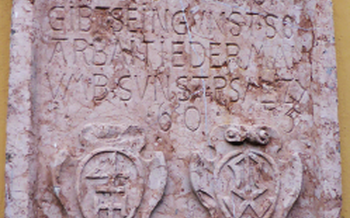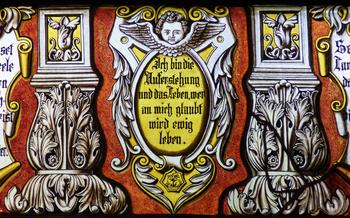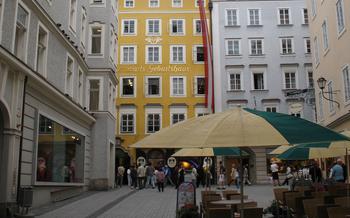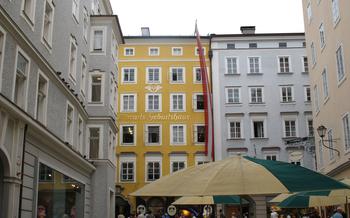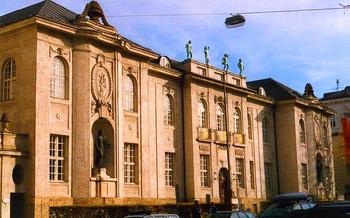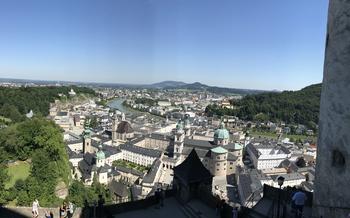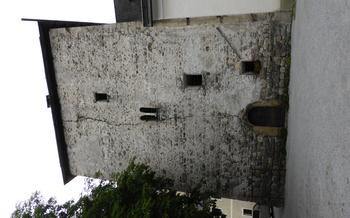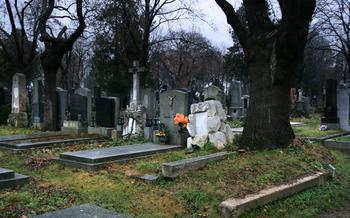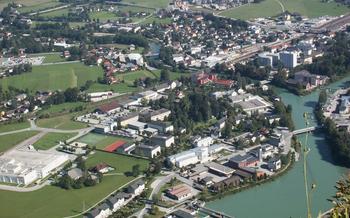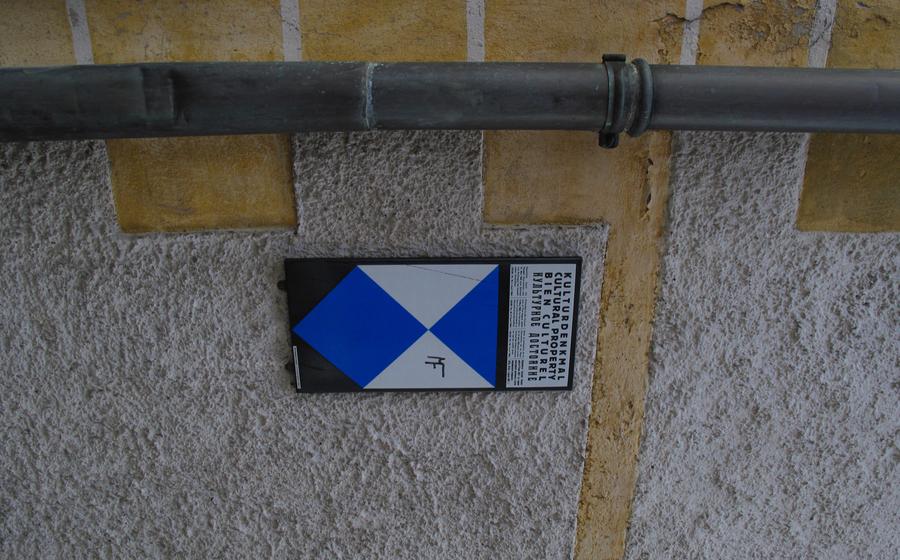
Mozart's Residence in Salzburg
- Salzburg’s Musical Heritage
- Mozart’s Birthplace
- Mozart’s Childhood Home
- Exploring the Mozart Residence
- Mozart’s Music Room
- Mozart’s Family Life
- Mozart’s Early Compositions
- Mozart’s Grand Tours
- Mozart’s Operas
- Mozart’s Final Years
- Mozart’s Legacy
- Exploring Salzburg’s Musical Heritage
- Mozart-themed Tours and Activities
- Insider Tip:
Salzburg’s Musical Heritage
Salzburg, nestled in the heart of Austria, holds a special place in the world of classical music. Its rich musical heritage is deeply intertwined with the life and works of Wolfgang Amadeus Mozart, one of history's most celebrated composers. Mozart's birthplace, the city's vibrant cultural scene, and the prestigious Salzburg Festival all contribute to Salzburg's reputation as a musical mecca.
Mozart's Birthplace and the City's Musical History:
Salzburg's musical roots run deep, extending far beyond Mozart's time. The city has a long history of nurturing musical talent, with a thriving community of musicians, composers, and performers. This fertile musical environment provided the perfect backdrop for Mozart's extraordinary talent to flourish.
The Influence of the Salzburg Festival on the City's Cultural Scene:
The Salzburg Festival, founded in 1920, has played a pivotal role in shaping the city's cultural landscape. This world-renowned festival attracts renowned musicians, conductors, and performers from around the globe. It offers a diverse program of concerts, operas, and theatrical productions, showcasing both classical masterpieces and contemporary works.
The Role of Wolfgang Amadeus Mozart in Shaping Salzburg's Musical Identity:
Wolfgang Amadeus Mozart, born in Salzburg in 1756, left an indelible mark on the city's musical identity. His prodigious talent and groundbreaking compositions revolutionized the world of classical music. Mozart's works, characterized by their melodic beauty, structural complexity, and emotional depth, continue to captivate audiences worldwide.
The Importance of Preserving and Celebrating Salzburg's Musical Legacy:
Salzburg takes great pride in preserving and celebrating its musical heritage. The city is home to numerous museums, historical sites, and cultural institutions dedicated to Mozart and other notable musicians. These institutions work tirelessly to ensure that Salzburg's rich musical traditions continue to inspire and enchant future generations.
Mozart’s Birthplace
Mozart's birthplace, Getreidegasse 9, holds immense significance in the musical history of Salzburg. This unassuming yellow building, nestled in the heart of the city's Old Town, is where Wolfgang Amadeus Mozart was born on January 27, 175The building, constructed in the 14th century, has witnessed the birth of a musical prodigy who would go on to captivate the world with his compositions.
The Mozart family resided on the third floor of the building, which comprised three rooms: a kitchen, a living room, and a bedroom. The living room, where Mozart spent much of his childhood, served as a practice space for the young musician. It was here that he took his first steps into the world of music, surrounded by the sounds of his father's violin and sister's harpsichord.
The cramped living conditions of the Mozart family reflect the modest circumstances in which they lived. Despite financial struggles, Leopold Mozart, Wolfgang's father, recognized his son's extraordinary talent and dedicated himself to nurturing it. The family's sacrifices and unwavering support laid the foundation for Mozart's remarkable journey.
In 1880, the Mozart family's apartment was transformed into a museum dedicated to the composer's life and work. The museum offers visitors a glimpse into Mozart's childhood environment and showcases artifacts that provide insights into his early years. Visitors can trace the footsteps of the young Mozart as they explore the rooms where he lived, composed, and dreamt of musical greatness.
Mozart’s Childhood Home
The Hagenauer Haus, located at Makartplatz 8, holds immense significance as Mozart’s childhood home. After outgrowing their previous residence, the Mozart family moved into this larger apartment in 1773 when Wolfgang was 17 years old. Here, they resided for nine years, and it was within these walls that Mozart composed some of his most celebrated works, including the Violin Concerto No. 3 and the opera Idomeneo.
The Hagenauer family, who owned the building, played a pivotal role in shaping Mozart’s upbringing. The Hagenauer sisters, especially, developed a close bond with Wolfgang and Nannerl, providing them with guidance and support. The family’s influence extended beyond the domestic sphere, as Johann Hagenauer, the patriarch, served as the official Salzburg court trumpeter. This connection exposed Mozart to the world of professional music and courtly life, fostering his early development as a musician.
Stepping into the Hagenauer Haus today, visitors can immerse themselves in the atmosphere of Mozart’s childhood. The apartment has been meticulously restored to its 18th-century splendor, showcasing the family’s living quarters, including the music room where Mozart composed. Interactive displays and multimedia presentations bring the Mozart family’s story to life, providing insights into their daily lives, creative processes, and the musical environment that nurtured Mozart’s genius.
Exploring the Mozart Residence
The Mozart Residence offers a comprehensive journey through the life and work of Wolfgang Amadeus Mozart. The various rooms and exhibits provide a glimpse into the composer's childhood, family life, and creative process.
One of the highlights of the residence is the preserved music room, where Mozart composed many of his masterpieces. The room features original musical instruments, furniture, and personal belongings, creating an immersive experience that allows visitors to step back in time and imagine Mozart at work.
Interactive displays and multimedia presentations enhance the visitor experience, providing insights into Mozart's compositions, influences, and techniques. Visitors can listen to recordings of his music, view interactive timelines, and learn about the historical context of his works.
Through the exhibits, visitors gain a deeper understanding of Mozart's genius, his dedication to his craft, and the challenges and triumphs he faced throughout his life. The Mozart Residence is a must-visit destination for anyone interested in exploring the life and legacy of one of the greatest composers in history.
Mozart’s Music Room
At the heart of the Mozart Residence lies a room that reverberates with the echoes of genius - Mozart's music room. Step inside this hallowed space, where the young prodigy composed some of his most iconic works. The room's original musical instruments and furniture have been meticulously preserved, transporting visitors back to an era of unparalleled creativity.
The acoustics of the room are a testament to Mozart's innate understanding of sound. The arrangement of the instruments and furnishings creates a perfect balance, allowing the music to resonate with clarity and depth. Standing in this very space, one can almost feel the presence of Mozart, his fingers dancing over the keys, his mind overflowing with melodies that would forever change the course of classical music.
Immerse yourself in the immersive experience of the music room, where interactive displays and multimedia presentations bring Mozart's life and work to life. Learn about his creative process, his influences, and the challenges he faced. Listen to recordings of his compositions, performed by world-renowned musicians, and let the notes wash over you, transporting you to a realm of pure musical genius.
Mozart’s Family Life
The Mozart family was a close-knit and talented group of musicians. Leopold Mozart, Wolfgang's father, was a successful composer and violinist who recognized and nurtured his son's prodigious talent from an early age. He provided Wolfgang with rigorous musical training and encouraged his development as a performer and composer.
Mozart's mother, Anna Maria Pertl, played a supportive role in her son's musical education and career. She accompanied the family on their travels and helped to manage their finances. Wolfgang's sister, Maria Anna (Nannerl), was also a talented musician and performed alongside her brother on several occasions. She played a significant role in his early life, acting as his companion and confidante.
Despite the family's close bonds, there were also challenges and tensions. Leopold Mozart's strict and demanding teaching methods sometimes clashed with Wolfgang's independent and creative spirit. The family's financial situation was often precarious, and they relied on the success of Wolfgang's performances and compositions to support themselves.
Despite these challenges, the Mozart family remained dedicated to their musical pursuits. They traveled extensively throughout Europe, performing in courts and concert halls across the continent. Wolfgang's talent and charisma captivated audiences, and he quickly gained fame and recognition as a child prodigy.
Mozart’s Early Compositions
Wolfgang Amadeus Mozart displayed extraordinary talent as a child composer. At the tender age of five, he began composing simple pieces for the clavier. By the time he was eleven, he had written his first opera, "Bastien und Bastienne." His early compositions showcased his innate musical abilities and laid the foundation for his future masterpieces.
Mozart's childhood works include concertos for piano, violin, and orchestra, as well as sonatas and symphonies. These compositions demonstrated his mastery of musical form and structure, as well as his ability to create melodies that were both memorable and emotionally expressive.
The influence of Mozart's father, Leopold, a renowned musician and composer himself, was instrumental in his son's early development. Leopold provided Wolfgang with rigorous musical training, exposing him to a wide range of musical styles and techniques. The musical environment of Salzburg, with its rich tradition of church music and courtly entertainment, also played a significant role in shaping Mozart's musical sensibility.
Mozart's early compositions were met with great acclaim and recognition. His performances as a child prodigy throughout Europe astounded audiences and earned him the patronage of influential figures. These early successes fueled his confidence and laid the groundwork for his remarkable career as one of the greatest composers in history.
Mozart’s Grand Tours
Mozart's extensive travels throughout Europe were a pivotal chapter in his life and career. Driven by a thirst for knowledge and a desire to showcase his extraordinary talent, he embarked on three major tours between 1762 and 177These journeys took him to some of the most prestigious courts and cultural centers of the time, including Vienna, Paris, London, and many others.
During these tours, Mozart had the opportunity to perform before royalty, nobility, and discerning audiences. He captivated listeners with his virtuosic playing and improvisational skills, leaving a lasting impression wherever he went. The tours also provided him with invaluable experiences and exposure to different musical traditions, which had a profound influence on his artistic development.
In Vienna, Mozart met with Emperor Joseph II, who became a significant patron and supporter. In Paris, he encountered the latest trends in French music and opera, which influenced his compositional style. His visit to London brought him into contact with the vibrant musical scene of the British capital and led to the composition of several symphonies.
Mozart's grand tours were not without their challenges. He faced language barriers, financial difficulties, and the rigors of travel in the 18th century. Yet, he persevered, driven by his passion for music and his unwavering belief in his own abilities.
These tours played a crucial role in shaping Mozart's reputation as a leading composer and performer of his time. They also contributed to the dissemination of his music across Europe, establishing him as one of the most influential and celebrated figures in the history of Western classical music.
Mozart’s Operas
Mozart's operas hold a central place in his career and legacy, representing a significant part of his creative output and establishing him as one of the greatest opera composers in history. He composed over 20 operas, ranging from early works like "Bastien und Bastienne" to his later masterpieces, such as "The Marriage of Figaro," "Don Giovanni," and "Così fan tutte."
In collaboration with renowned librettists like Lorenzo da Ponte, Mozart crafted operas that were not only musically brilliant but also dramatically compelling. His operas often explored themes of love, betrayal, social class, and human nature, with characters that were complex and relatable.
Mozart's operas were groundbreaking and innovative for their time. He pushed the boundaries of the genre, experimenting with different musical forms, expanding the orchestra, and introducing new compositional techniques. His operas were not just mere entertainment but also vehicles for social commentary and exploration of human emotions.
The enduring popularity and influence of Mozart's operas are a testament to his genius and the universal appeal of his music. His operas continue to be performed worldwide, captivating audiences with their timeless melodies, dramatic narratives, and profound insights into the human condition.
Mozart’s Final Years
Mozart's final years were marked by both creative brilliance and personal struggles. Despite his declining health and financial difficulties, he continued to compose prolifically, producing some of his most profound and enduring works. Among these were the opera "The Magic Flute," the Clarinet Concerto, and the Requiem Mass.
The circumstances surrounding Mozart's death remain shrouded in mystery. He passed away in Vienna on December 5, 1791, at the age of 3The exact cause of his death is unknown, with various theories ranging from rheumatic fever to kidney failure.
Mozart's funeral was a humble affair, reflecting his financial situation at the time. He was buried in an unmarked grave in the St. Marx Cemetery, in accordance with the common practice of the time for paupers.
Despite the obscurity of his final resting place, Mozart's legacy as one of the greatest composers in history remains undiminished. His music continues to be performed and celebrated worldwide, inspiring and enchanting audiences of all ages.
Mozart’s Legacy
Mozart's musical genius has had a profound impact on Western classical music. His contributions to the development of opera, symphony, and chamber music are immeasurable. His operas, such as "The Marriage of Figaro" and "Don Giovanni," are considered masterpieces of the genre, pushing the boundaries of musical expression and dramatic storytelling. Mozart's symphonies, with their intricate structures and emotional depth, have become cornerstones of the orchestral repertoire. His chamber music, including his string quartets and piano sonatas, showcases his mastery of counterpoint, harmony, and melodic invention.
Mozart's influence on subsequent generations of composers has been profound. Beethoven, Schubert, and Brahms all drew inspiration from his music, and his techniques and innovations continue to be studied and emulated by composers to this day. His music has also found its way into popular culture, with his compositions appearing in films, television shows, and commercials.
The enduring popularity and relevance of Mozart's music are a testament to its universal appeal. His melodies are instantly recognizable, his harmonies are rich and complex, and his ability to express a wide range of emotions through music is unparalleled. Whether you are a seasoned classical music aficionado or a casual listener, Mozart's music has the power to captivate and transport you to another realm.
Exploring Salzburg’s Musical Heritage
Beyond the Mozart Residence, Salzburg offers a wealth of attractions and landmarks that celebrate its rich musical heritage. Visitors can immerse themselves in the city's musical legacy by exploring the following:
-
The Salzburg Festival: Established in 1920, the Salzburg Festival is one of the world's most prestigious performing arts festivals. Held annually in July and August, the festival presents a diverse program of opera, theater, and concerts, featuring renowned artists from around the globe.
-
Mirabell Palace and Gardens: This stunning palace and its surrounding gardens were a favorite haunt of Mozart. He often performed concerts in the palace's Marble Hall and found inspiration for his compositions while strolling through the picturesque gardens.
-
Mozarteum University Salzburg: Founded in 1841, the Mozarteum University Salzburg is one of the world's leading institutions for music education. The university offers a range of programs in music performance, composition, and music education, and its students and faculty regularly perform concerts and recitals throughout the city.
-
DomQuartier Salzburg: This museum complex, located in the heart of the city, houses a collection of religious art and artifacts, including many pieces related to Mozart's life and work. Visitors can explore the cathedral, the Residenz, and the St. Peter's Abbey, and learn about the role of music in Salzburg's religious history.
Mozart-themed Tours and Activities
To delve deeper into Mozart's life and legacy, consider joining a guided tour or participating in a themed activity. Walking tours are a popular option, allowing you to trace Mozart's footsteps and visit significant locations associated with him. These tours often provide insights into his childhood, his family life, and his musical career. Thematic concerts and performances are another way to experience Mozart's music in a live setting. These events showcase his compositions, often performed by talented musicians in historic venues. To immerse yourself fully in Mozart's era, consider dressing up in period costumes and attending a ball or a concert. This unique experience offers a glimpse into the social and cultural atmosphere of Mozart's time.
Insider Tip:
When in Salzburg, immerse yourself in Mozart's legacy beyond the popular tourist spots. Discover the hidden gem of the Mozarteum Library, housing an impressive collection of Mozart's original manuscripts and personal letters. Take advantage of the opportunity to attend a concert at the Salzburg Marionette Theatre, where Mozart's operas are brought to life through enchanting marionette performances. For a unique culinary experience, savor a Mozartkugel, a delectable chocolate confection filled with marzipan and nougat, named in honor of the composer. Embracing these hidden gems and local traditions will provide a deeper connection to Mozart's life and work, creating a truly memorable and enriching experience.
